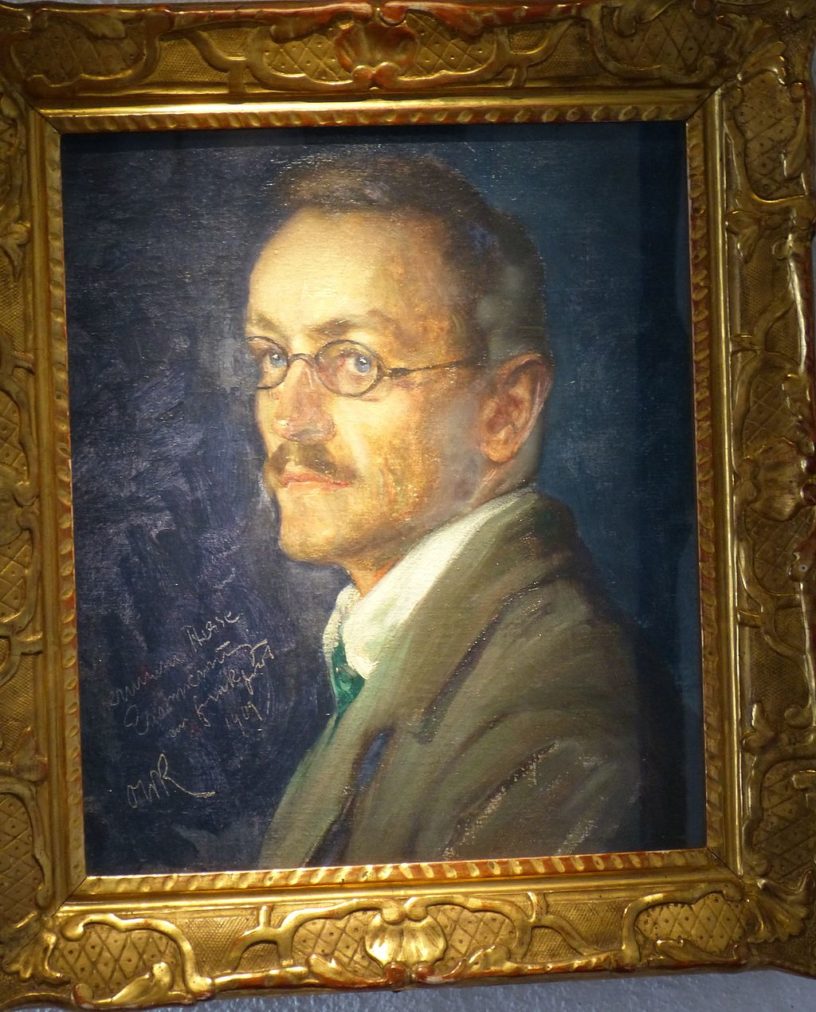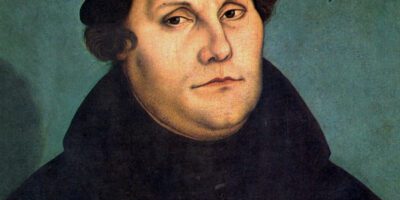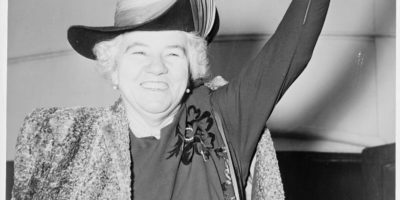Hermann Hesse by Nobel Foundation from Wikimedia Commons
Top 10 Remarkable Facts about Hermann Hesse
German-born Swiss poet, writer, and painter Hermann Karl Hesse produced works of art. His most well-known pieces, including Demian, Steppenwolf, Siddhartha, and The Glass Bead Game, each depict a person’s quest for spirituality, self-knowledge, and honesty. He was awarded the Nobel Prize in Literature in 1946.
In the German-speaking world, Hesse was a well-liked and significant author; widespread fame came much later. Young Germans eager for a better and more “natural” way of life in this era of rapid economic and scientific advancement embraced Hesse’s first big book, Peter Camenzind, with enthusiasm.
On the generation of First World War veterans who were returning home, Demian had a significant and enduring impact. The Glass Bead Game captured Germans’ desire for a new order amid the chaos of a broken nation in the aftermath of the Second Realm War with its disciplined intellectual world of Castalia and the powers of meditation and humanism.
We’d like to give a few intriguing tidbits about the renowned 20th-century author who won the Nobel Prize for Literature in 1946.
1. His grandfather influenced his reading culture

Hermann Hesse by Ernst Würtenberger from Wikimedia Commons
His grandpa provided Hermann Hesse access to his library and encouraged him to read freely. He went to the Goppingen Latin School after which, at his father’s request, he enrolled in the Maulbronn Abbey Evangelical Theological Seminary in 1891. He opted to quit out after having trouble adjusting to the surroundings at the seminary. This led to a personal crisis, resentment toward his parents, and an attempt on his life in May 1892.
2. His brother was his role model
Theo, the young writer’s half-brother, served as his first inspiration since he disobeyed the family to pursue a musical education. He was inspired by this example to pursue a career in the arts, but despite his lifelong passion for music, he deliberately chose to pursue a career in writing.
3. He had signs of extraordinary intelligence
He had great brilliance at a young age and has a unique talent for manipulating words, particularly rhyme. Also, he had early indicators of depression. He appears to have suffered from depression for a significant portion of his life, finding tremendous solace in reading, listening to music, and writing.
4. He attempted suicide in 1892
He pursued literature in several colleges thanks to his rebellious nature, but his noisy nature caused him problems. In 1892, he made an attempt on his life; as a result, he wound up in a psychiatric hospital. He came up with an intriguing interpretation of the act of suicide.
From Steppenwolf, this thought: “To name suicides only those who truly harm themselves is wrong. The peculiarity of the suicide is that, whether or wrongly, his ego is perceived as an extraordinarily risky, questionable, and doomed germ of nature; he is always at risk in his own eyes.
5. He worked at a bookshop

Hermann Hesse by Dutch National Archives from Wikimedia Commons
Hermann Hesse worked as an apprentice after finishing school, first in a clock manufacture and then, starting in October 1895, with a bookshop in Tubingen. He was able to read more widely thanks to his job at the bookstore.
He read works by Johann Goethe, Gotthold Lessing Clemens Brentano, Friedrich Schiller, Greek mythology, German Romantics, and other authors. So he made the decision to become a poet. By 1898, he was financially independent of his parents thanks to a steady wage.
6. His marital life
In 1904, Hermann Hesse wed Maria Bernoulli. The couple had three boys while residing in Gaienhofen on Lake Constance. His interest in Buddhism was revived around this time after reading a piece by Arthur Schopenhauer and learning about Theosophy.
Numerous problems in the marriage finally led to divorce. Ruth Wenger, a singer, was the subject of his second marriage, which also failed to last.
7. On his 125th birthday, the Hermann Hesse society was created

Hermann Hesse by RudolfSimon from Wikimedia Commons
On his 125th birthday in 2002, the Hermann Hesse Society was established, and in 2017, the inaugural Calw Hermann Hesse Prize was presented. The prize is presented for one year to a German-language publication, and then alternately to the best translator of that publication’s works.
8. In 2002, the St. Nicholas Bridge Hesse Monument

Calw Hermann Hesse Denkmal by MSeses from Wikimedia Commons
On his 125th birthday in 2002, the Hermann Hesse Society was established, and in 2017, the inaugural Calw Hermann Hesse Prize was presented. The prize is presented for one year to a German-language publication, and then alternately to the best translator of that publication’s works.
9. He had a significant impact from Western intellectuals
Hesse was greatly inspired by Western thinkers, despite the fact that he is likely best known for introducing Eastern philosophy to Western writing. He claimed that Nietzsche, Spinoza, Plato, and Schopenhauer were his primary Western inspirations.
10. Writing career
The poem Madonna was written by Hermann Hesse and published in an Austrian magazine in 1896. He published his first collection of poetry, Romantic Songs, the following year. One Hour After Midnight, a collection of prose, was then published by Eugen Diederichs. Only a few copies of the two works were sold, making them a commercial failure.
Hesse was in a profound shock as a result of the failure of the works and his mother’s rejection of Romantic Songs. His book Posthumous Writing and Poems of Hermann Lauscher, published by Samuel Fischer in 1901, received favorable reviews, which marked the start of his career as a writer. Hesse’s first book, Peter Camenzind, was a hit after this.
Academics and literary critics have treated Hesse in an inconsistent manner. Some criticize his art as being simplistic and juvenile, however, his work has inspired many people in literature.
Planning a trip to Paris ? Get ready !
These are Amazon’s best-selling travel products that you may need for coming to Paris.
Bookstore
- The best travel book : Rick Steves – Paris 2023 – Learn more here
- Fodor’s Paris 2024 – Learn more here
Travel Gear
- Venture Pal Lightweight Backpack – Learn more here
- Samsonite Winfield 2 28″ Luggage – Learn more here
- Swig Savvy’s Stainless Steel Insulated Water Bottle – Learn more here
Check Amazon’s best-seller list for the most popular travel accessories. We sometimes read this list just to find out what new travel products people are buying.











